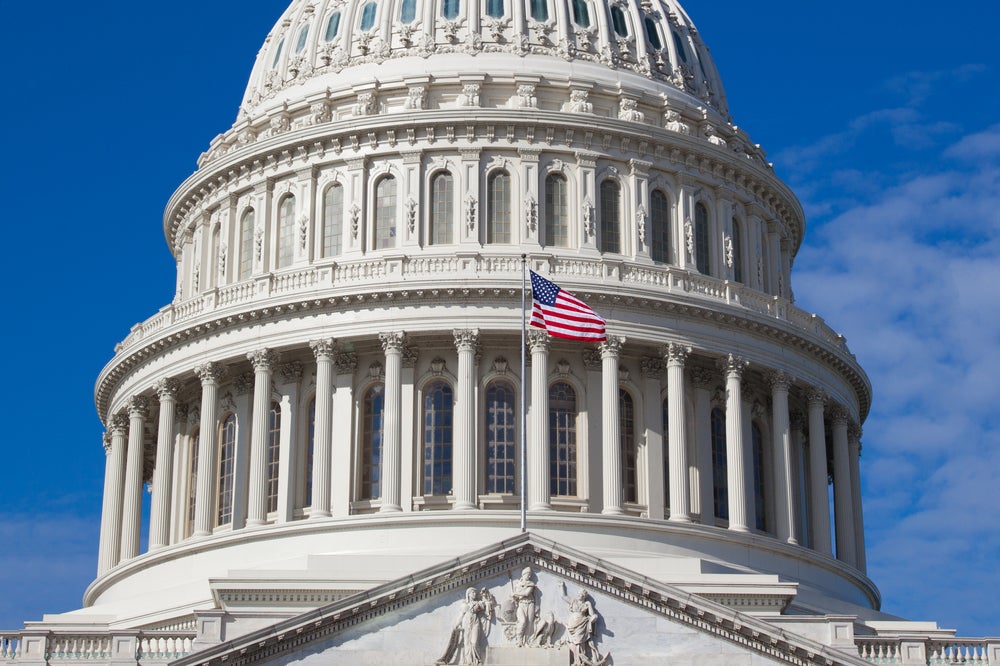Congress urged to tackle de minimis threats to US workers, supply chains just

Earl Blumenauer, ranking member of the Ways and Means Trade Subcommittee, is urging Congress to address the exploitative nature of the de minimis loophole that threatens American supply chains and workers. He reintroduced the Import Security and Fairness Act to prevent non-market economies from taking advantage of the loophole. Expert witnesses and Democratic members of the Ways and Means Committee gathered to discuss the issue. Other speakers highlighted the detrimental impact of the loophole on American businesses and the need for Congress to act urgently to close it. The loophole allows for duty-free imports from China while American businesses face barriers in China.
Source: Link
Frequently Asked Questions
FAQ 1: What is the de minimis loophole that is affecting US workers and supply chains?
Answer: The de minimis loophole refers to a threshold below which imported goods are exempt from customs duties and taxes. This threshold can create a disadvantage for domestic industries by making it easier and cheaper for overseas competitors to ship small-value shipments into the United States, potentially harming American businesses and jobs.
FAQ 2: Why is Congress being urged to act against the de minimis loophole?
Answer: Congress is being urged to act against the de minimis loophole because its detrimental impacts on US supply chains and workers have raised concerns. There's a need to address these issues to protect domestic industries, jobs, and potentially national security interests.
FAQ 3: What types of risks are associated with the de minimis loophole and Chinese e-commerce platforms?
Answer: Risks can include data security concerns, unfair competition due to lower cost of goods, and exploitation of weak trade laws that can potentially lead to intellectual property theft and questions over sourcing and labor standards.
FAQ 4: What proposals have been made to address the de minimis threats?
Answer: Specific proposals to address the de minimis threats may include tightening controls over e-commerce imports, increasing scrutiny of foreign products' sourcing and labor practices, and potentially lowering the de minimis thresholds to create more equitable competition conditions for domestic industries.
FAQ 5: How does the de minimis loophole affect the fashion supply chain?
Answer: The fashion supply chain can be notably affected by the de minimis loophole as lower-value shipments from overseas suppliers can bypass typical customs duties and taxes, potentially leading to a flood of cheap imports and undercutting domestic manufacturers.
FAQ 6: Has there been legislative action to prevent exploitation of this loophole?
Answer: Yes, there has been legislative action proposed, such as bills introduced to prevent countries like China from exploiting weak trade laws, as well as adjustments to existing laws like the Uyghur Forced Labor Prevention Act (UFLPA) to close the loophole.
FAQ 7: Are there any broader implications of addressing the de minimis loophole?
Answer: Addressing the de minimis loophole has broader implications, such as reinforcing the integrity of US borders, promoting fair trade, protecting US manufacturers and workers, ensuring compliance with labor regulations, and maintaining national security interests.
For more detailed information regarding these concerns, one could refer to the articles and documents provided in the search results, particularly those from just-style.com, the USCC report on Chinese eCommerce risks, and statements from trade organizations and legislative bodies.
Congress urged to act against de minimis threats to US workers, supply chains - Just Style
US Senators introduce bill to prevent China exploiting weak US trade laws - Just Style
Shein, Temu, and Chinese e-Commerce: Data Risks, Sourcing - USCC

